
7 Signs You Have Abandonment Issues
Hey Psych2go family, welcome back to another video. Do you have an overwhelming fear of losing your loved ones? Do you distrust other people or have anxiety about being abandoned? Abandonment issues typically arise in childhood but can develop later on in life as well. The fear of abandonment is a serious type of anxiety that often stems from a traumatic experience. Some aren’t even aware of their expressed emotional trauma. But it can manifest into unhealthy behaviors over time. So, here are 7 Signs You may Have Abandonment Issues. One: you’re a people pleaser. Do you want to impress everyone you meet? Whether it’s your friends, acquaintances, or family members, you try to meet their expectations to get on their good side. You’re the one who tries harder in your relationship, and you’re willing to put everyone else’s needs ahead of yours, as long as it gets them to stay. If you have a strong need to please people and gain their approval, you may still have some unresolved abandonment issues.Two: you struggle with insecurity. Do you sometimes think that someday, the people closest to you will get sick of you and leave? People who are afraid of being abandoned often struggle with feelings of insecurity and inadequacy because someone you love has walked out on you in the past. You’ve internalized the emotional trauma. You may have wrongly believed that it was YOUR fault that they left. This can result in low self-esteem and a need for constant rereassuranceThree: you find it hard to trust people Do you find it hard to trust others to keep their promises or to be there for you? Do you want to be in control of your relationships and know everything that’s going on with your loved ones? Because you’ve been hurt in the past, you have a strong fear of being left alone.In certain cases, it can lead to feelings of unreasonable jealousy, suspicion, and possessiveness over your friends and romantic partners. Four: you’re afraid to be vulnerable Do you feel uncomfortable during moments of emotional intimacy and honesty? Are you scared of getting close to someone or needing them too much? Your deep-seated fear of abandonment may manifest into a fear of intimacy and emotional vulnerability. You may unconsciously sabotage your relationships by pushing people away just as you start to care for them. You may struggle with commitment, and act detached and indifferent when you do care.Five: you look for reasons to leave. Do you always look for reasons to leave in fear of getting too attached to someone? You hold your loved ones to unrealistically high standards and you only focus on their flaws. You don’t give them any room for mistakes. You do this knowing that they’re bound to disappoint you. And when they fail to meet your expectations, you use it as an excuse to give up and leave. Six: you move on too quickly Do you have difficulty forming meaningful relationships that last because of a deep-seated fear of abandonment? When you cycle through relationships one after another and move on too quickly, you’re not allowing yourself the time and space to deal with the emotional fallout.Instead, you dive into something new and exciting to distract yourself. You never want to be alone, because it would force you to confront the personal issues you’ve been repressing for so long. And number 7… you cling to unhealthy relationships Do you find yourself gravitating towards all the wrong people? Have you stayed with someone knowing they’re bad for you? The trauma of being abandoned, especially at a young age, can stay with you for a long time. And since we’re all hard-wired to recreate our early childhood experiences for comfort and familiarity, your childhood taught you the wrong things about love. It’s not uncommon for you to be drawn to people who treat you poorly. Do you relate to any of the signs mentioned here? I know I did… Is a fear of abandonment harming your relationships and keeping you from being happy? Let us know in the comments below. If you found this video helpful, be sure to like and share this video with those who might benefit from it! Don’t forget to subscribe to Psych2go for more videos! Thanks for watching, and we’ll see you in the next one! Do you have an overwhelming fear of losing your loved ones? Do struggle with trust issues or have anxiety about being abandoned? Abandonment issues typically arise in childhood but can develop later on in life as well. The fear of abandonment is a serious type of anxiety that often stems from a traumatic experience. Some aren’t even aware of their repressed emotional trauma, but it can manifest into unhealthy behaviors over time. Here are 7 signs that you may have abandonment issues. If you want to learn more about how your childhood trauma may cause you to have abandonment issues, be sure to check out our video “7 Ways Childhood Trauma Follow You Into Adulthood”:  • 7 Ways Childhood Trauma Follow You In… #abandonment #issues #psych2go ᵛᶦᵈᵗᵒᵒⁿ™ ².¹ ᴏɴᴇ ᴛɪᴍᴇ ᴏꜰꜰᴇʀ – ᴛʜᴇ 2ᴅ ᴀᴍɪɴᴀᴛɪᴏɴ ᴠɪᴅᴇᴏ ᴍᴀᴋᴇʀ After The Massive Success Of VidToon™ 1.0
And More Than 10ᴋ Happy Customers…WE ARE BACK ON Popular Demand! Redefine Profitability With The World’s Easiest & Most Popular Video Animation Software It’s ʙɪɢɢᴇʀ. ʙᴇᴛᴛᴇʀ. ᴀɴᴅ ꜰᴀꜱᴛᴇʀ.
• 7 Ways Childhood Trauma Follow You In… #abandonment #issues #psych2go ᵛᶦᵈᵗᵒᵒⁿ™ ².¹ ᴏɴᴇ ᴛɪᴍᴇ ᴏꜰꜰᴇʀ – ᴛʜᴇ 2ᴅ ᴀᴍɪɴᴀᴛɪᴏɴ ᴠɪᴅᴇᴏ ᴍᴀᴋᴇʀ After The Massive Success Of VidToon™ 1.0
And More Than 10ᴋ Happy Customers…WE ARE BACK ON Popular Demand! Redefine Profitability With The World’s Easiest & Most Popular Video Animation Software It’s ʙɪɢɢᴇʀ. ʙᴇᴛᴛᴇʀ. ᴀɴᴅ ꜰᴀꜱᴛᴇʀ.

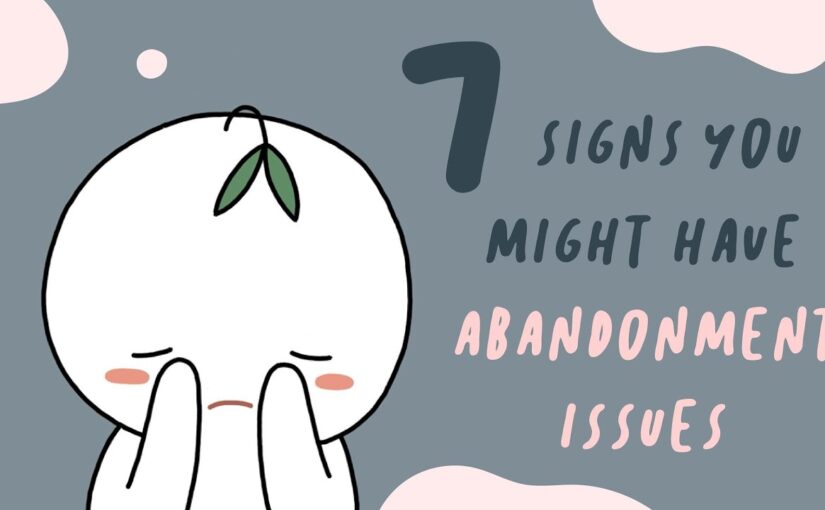


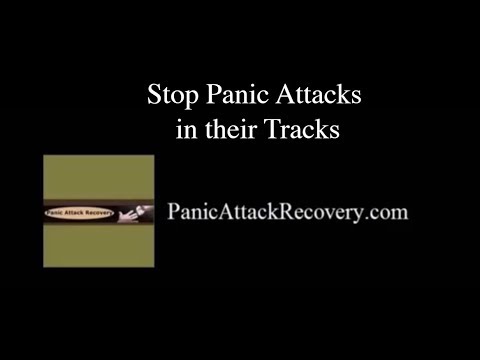
 Imagine trying to accomplish these things
when you are in a state of panic. In such a scenario, it is the panic
that can endanger people’s lives. In other words, your fear is the thing
to most be concerned over when you are lost in the woods. This is not only the case with the example
provided, but in reality, fear is usually the biggest factor in anxiety and panic
attacks. And that’s why using Dr. Weekes’ suggestion
can be so effective for anxiety. You can stop doing whatever it is that you’re
doing, stop exacerbating the situation, and your sense of control returns because you
are no longer feeding your anxiety and you begin to enable yourself to think more clearly. Then you will be in a more rational state
to respond to the challenge you are facing. Allow yourself to think about the worst-case
scenario when it comes to a panic attack. What would happen if you stopped doing whatever
it is you’re doing when you feel a panic attack coming on? Many people at first believe that they’ll
spiral out of control. However, this is not the case. Rather, by not feeding your anxiety, you will
begin to feel better and regain the feeling of control that you never really did lose
but you felt like you were losing. Like anything, this technique requires practice. However, over time you can demonstrate for
yourself how effective this approach can be and realize that you don’t have to get stuck
in a pattern that makes your emotions worse. Best of all, while this suggestion can be
very beneficial for anxiety and panic attack sufferers, it extends more broadly to other
emotions that many people experience from time to time. Our videos are designed for those suffering
from anxiety, panic attacks, and agoraphobia. However, anyone can benefit from them. To ensure you benefit from all of the information
that we share regularly, you can visit our website, and sign up for our free
email newsletter. Please visit our website at PanicAttackRecovery.com.
Imagine trying to accomplish these things
when you are in a state of panic. In such a scenario, it is the panic
that can endanger people’s lives. In other words, your fear is the thing
to most be concerned over when you are lost in the woods. This is not only the case with the example
provided, but in reality, fear is usually the biggest factor in anxiety and panic
attacks. And that’s why using Dr. Weekes’ suggestion
can be so effective for anxiety. You can stop doing whatever it is that you’re
doing, stop exacerbating the situation, and your sense of control returns because you
are no longer feeding your anxiety and you begin to enable yourself to think more clearly. Then you will be in a more rational state
to respond to the challenge you are facing. Allow yourself to think about the worst-case
scenario when it comes to a panic attack. What would happen if you stopped doing whatever
it is you’re doing when you feel a panic attack coming on? Many people at first believe that they’ll
spiral out of control. However, this is not the case. Rather, by not feeding your anxiety, you will
begin to feel better and regain the feeling of control that you never really did lose
but you felt like you were losing. Like anything, this technique requires practice. However, over time you can demonstrate for
yourself how effective this approach can be and realize that you don’t have to get stuck
in a pattern that makes your emotions worse. Best of all, while this suggestion can be
very beneficial for anxiety and panic attack sufferers, it extends more broadly to other
emotions that many people experience from time to time. Our videos are designed for those suffering
from anxiety, panic attacks, and agoraphobia. However, anyone can benefit from them. To ensure you benefit from all of the information
that we share regularly, you can visit our website, and sign up for our free
email newsletter. Please visit our website at PanicAttackRecovery.com.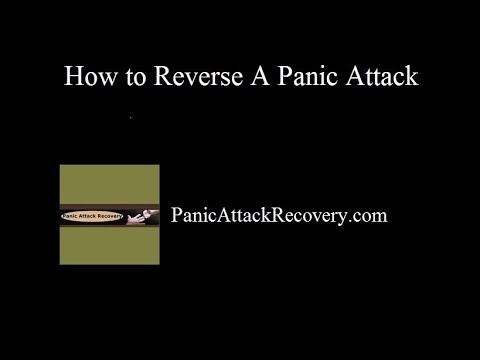

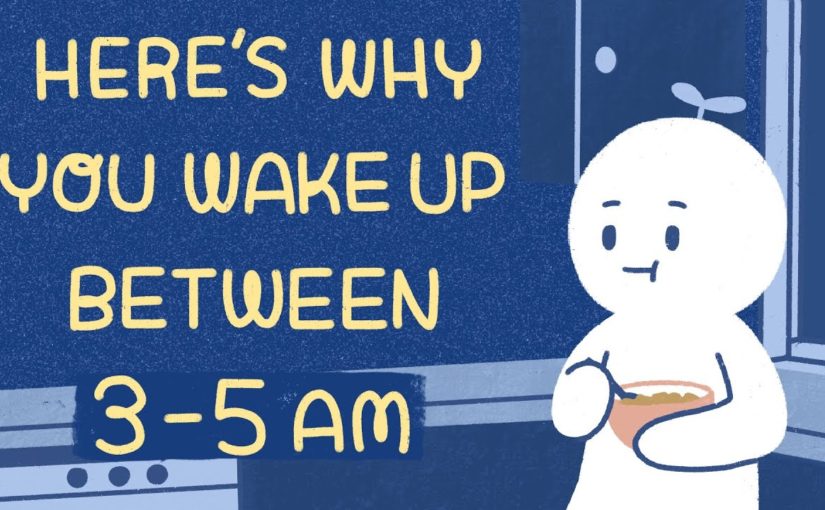
 Number three, low blood sugar. Did you know that low
blood sugar can cause your brain to wake you up
in the middle of the night? Your brain is very active during the night as it regenerates, repairs, and converts your short-term memories into long-term memories while you sleep. However, since it’s so
active during the night, it also uses up a lot
of your energy reserves. If you suffer from low blood sugar levels, your brain will consume
most of your energy reserves and think that you’ve run out of fuel. As a result, your brain
will release cortisol to make you hungry and wake you up so you can go get something to eat. If you find yourself routinely waking up and going to the kitchen to root around for a midnight snack, you may have low blood sugar levels and this might be the cause
of your sleep disturbances. If you’re having trouble
sleeping through the night and waking up at odd hours do you now have a better sense of why this is happening to you? What are other reasons
you think could be waking you up at 3:00 am and 5:00 am? Share your thoughts with
us in the comments below. Please like and share this
video if it helped you and you think it could
help someone else too. The studies and references used are listed in the description below. Don’t forget to hit the subscribe button for more Psych2go videos
and thank you for watching. We’ll see you next time.
Number three, low blood sugar. Did you know that low
blood sugar can cause your brain to wake you up
in the middle of the night? Your brain is very active during the night as it regenerates, repairs, and converts your short-term memories into long-term memories while you sleep. However, since it’s so
active during the night, it also uses up a lot
of your energy reserves. If you suffer from low blood sugar levels, your brain will consume
most of your energy reserves and think that you’ve run out of fuel. As a result, your brain
will release cortisol to make you hungry and wake you up so you can go get something to eat. If you find yourself routinely waking up and going to the kitchen to root around for a midnight snack, you may have low blood sugar levels and this might be the cause
of your sleep disturbances. If you’re having trouble
sleeping through the night and waking up at odd hours do you now have a better sense of why this is happening to you? What are other reasons
you think could be waking you up at 3:00 am and 5:00 am? Share your thoughts with
us in the comments below. Please like and share this
video if it helped you and you think it could
help someone else too. The studies and references used are listed in the description below. Don’t forget to hit the subscribe button for more Psych2go videos
and thank you for watching. We’ll see you next time.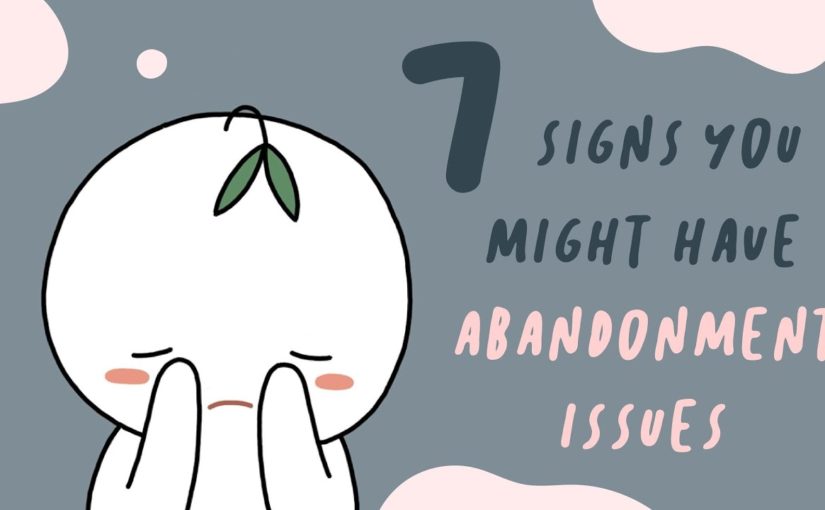

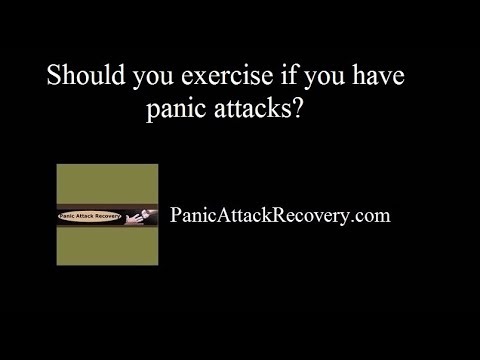
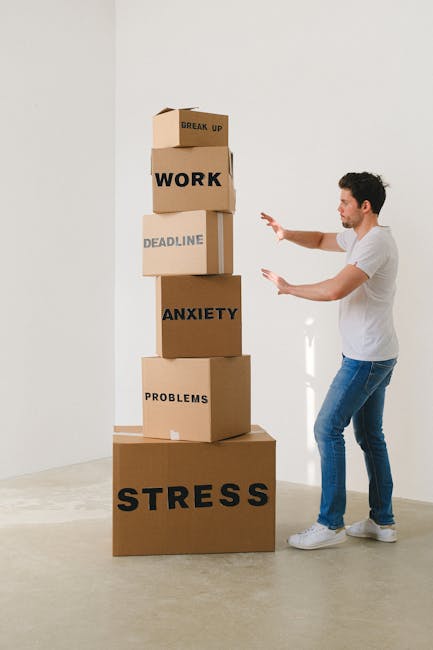 We think that realizing the connection between
exercise and panic attacks can be very helpful not only because of the reasons above. But the reason is that exercise allows you
to be in a controlled situation where are increasing your pulse. This demonstrates that you can deal with an
increased pulse – an increased pulse, as you are no doubt aware, is often one of the
concerns the sufferer has during a panic attack. I would like to mention a study completed
at Charite University Medicine in Berlin. This study found that 50% of subjects who
completed 30 minutes of daily aerobic exercise were able to avoid having a panic attack in
the experiment. Researchers wrote: “Our results for the
first time suggest that exercise has an acute anti panic activity.” Pretty good evidence for a correlation between
exercise and panic attacks. So what’s cool: The energy that one
might have invested in their anxiety, in the past, can be redirected to their well-being
through exercise. This realization in itself can make one feel
better. Be sure to
subscribe to our channel and like our videos if they are helpful to you. Please feel free to share our videos with
others who may benefit from them. Your communication is important to us. If you have any questions or comments, please
feel free to leave them in the in comments below. To get started with more help you can join
our free newsletter at:
We think that realizing the connection between
exercise and panic attacks can be very helpful not only because of the reasons above. But the reason is that exercise allows you
to be in a controlled situation where are increasing your pulse. This demonstrates that you can deal with an
increased pulse – an increased pulse, as you are no doubt aware, is often one of the
concerns the sufferer has during a panic attack. I would like to mention a study completed
at Charite University Medicine in Berlin. This study found that 50% of subjects who
completed 30 minutes of daily aerobic exercise were able to avoid having a panic attack in
the experiment. Researchers wrote: “Our results for the
first time suggest that exercise has an acute anti panic activity.” Pretty good evidence for a correlation between
exercise and panic attacks. So what’s cool: The energy that one
might have invested in their anxiety, in the past, can be redirected to their well-being
through exercise. This realization in itself can make one feel
better. Be sure to
subscribe to our channel and like our videos if they are helpful to you. Please feel free to share our videos with
others who may benefit from them. Your communication is important to us. If you have any questions or comments, please
feel free to leave them in the in comments below. To get started with more help you can join
our free newsletter at: 
 By practicing this suggestion over time you
will get better at it. Often anxiety sufferers can be helped by learning
how to be gracefully assertive in their relations with others. By learning polite assertiveness, you can
decrease your anxiety across several situations. We hope that you have enjoyed this video. To get more help with your anxiety, and obtain instant access to the 5 steps to
recovery from panic attacks and agoraphobia, just visit our website and provide your email
address. All of our information is free. Please visit our website at
By practicing this suggestion over time you
will get better at it. Often anxiety sufferers can be helped by learning
how to be gracefully assertive in their relations with others. By learning polite assertiveness, you can
decrease your anxiety across several situations. We hope that you have enjoyed this video. To get more help with your anxiety, and obtain instant access to the 5 steps to
recovery from panic attacks and agoraphobia, just visit our website and provide your email
address. All of our information is free. Please visit our website at 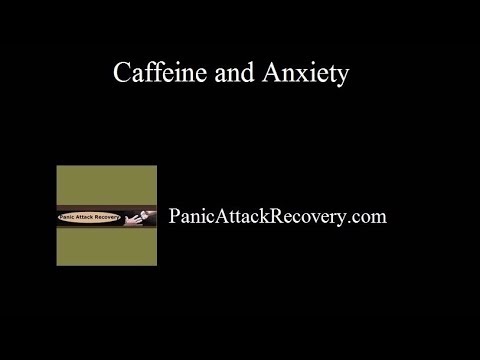
 Withdrawal symptoms have been reported, such as headache, irritability, sleeplessness, confusion, nausea, restlessness, tremor palpitations, and raised blood pressure. You might be asking how to kick the caffeine habit or reduce the amount of coffee you consume. We would suggest you may want to think about two things. 1 Become aware of all your sources of caffeine by taking an inventory of all of your caffeine levels and 2. Consider substituting green tea in place of all or some of your daily coffee. Why green tea? Although green tea, has some caffeine? It s not nearly as much as coffee As mentioned, while a brewed 8 oz cup of coffee can have about 95 200 mg of caffeine. Green tea has about 14 40 mg of caffeine. Only In addition to subscribing to our YouTube channel, you can visit our website and Sign up for our free email newsletter, Obtain a range of articles about panic, attacks, anxiety, and agoraphobia, and Follow us on Twitter and Facebook. By taking advantage of these options, you can be assured that you will not be missing out on any of our resources. Please visit our website at
Withdrawal symptoms have been reported, such as headache, irritability, sleeplessness, confusion, nausea, restlessness, tremor palpitations, and raised blood pressure. You might be asking how to kick the caffeine habit or reduce the amount of coffee you consume. We would suggest you may want to think about two things. 1 Become aware of all your sources of caffeine by taking an inventory of all of your caffeine levels and 2. Consider substituting green tea in place of all or some of your daily coffee. Why green tea? Although green tea, has some caffeine? It s not nearly as much as coffee As mentioned, while a brewed 8 oz cup of coffee can have about 95 200 mg of caffeine. Green tea has about 14 40 mg of caffeine. Only In addition to subscribing to our YouTube channel, you can visit our website and Sign up for our free email newsletter, Obtain a range of articles about panic, attacks, anxiety, and agoraphobia, and Follow us on Twitter and Facebook. By taking advantage of these options, you can be assured that you will not be missing out on any of our resources. Please visit our website at